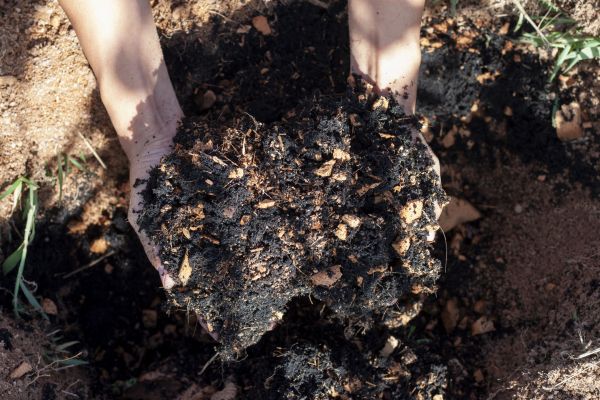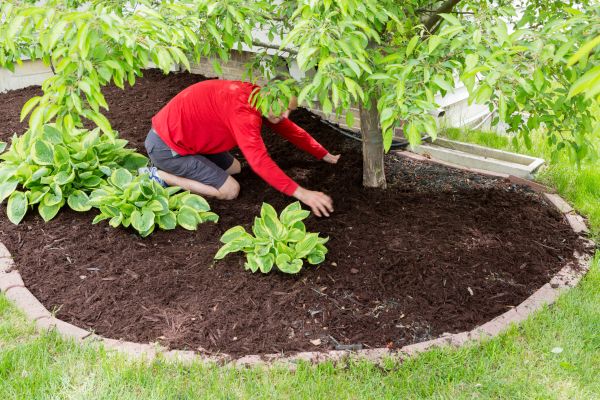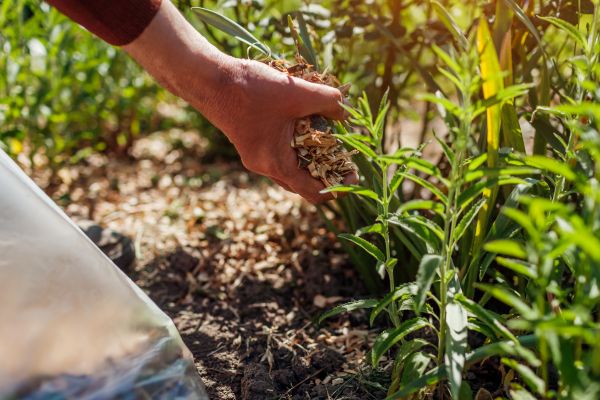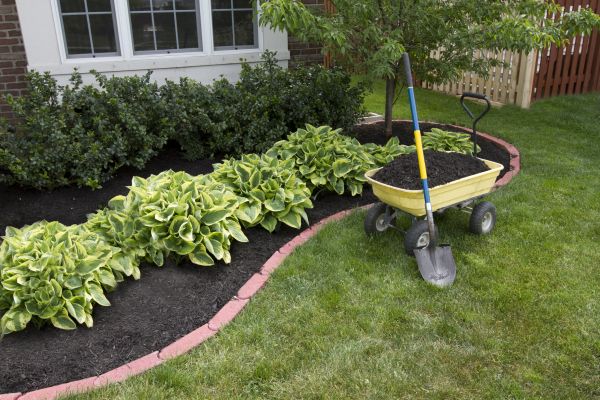Plant Bed Mulching Service
Affordable Plant Bed Mulching
Plant bed mulching is a gardening practice that involves covering the soil around plants with a layer of organic or inorganic material. This technique is essential for maintaining healthy plant beds as it helps in conserving moisture, suppressing weed growth, and regulating soil temperature. By creating a protective barrier, mulching enhances the overall aesthetic of the garden while promoting the well-being of the plants. It is a straightforward yet highly effective method to ensure that plants thrive in their environment, making it a crucial part of any gardening or landscaping strategy.
Benefits of Plant Bed Mulching
-
Moisture Retention: Mulching significantly reduces water evaporation from the soil, which means less frequent watering is required. This is particularly beneficial during hot and dry seasons, ensuring that plants have a consistent supply of moisture.
-
Weed Suppression: A thick layer of mulch prevents sunlight from reaching the soil, which inhibits the germination and growth of weeds. This reduces the need for manual weeding and minimizes competition for nutrients between weeds and plants.
-
Soil Temperature Regulation: Mulch acts as an insulating layer, keeping the soil cooler in the summer and warmer in the winter. This helps in maintaining a stable environment for plant roots, promoting healthier growth.
-
Nutrient Enrichment: Organic mulches, such as wood chips or compost, decompose over time, adding valuable nutrients to the soil. This natural fertilization process enhances soil fertility and improves plant health.
-
Erosion Control: Mulching helps to prevent soil erosion by reducing the impact of rain and wind on the soil surface. This is particularly important on slopes or in areas prone to heavy rainfall.
FAQs About Plant Bed Mulching
What types of materials can be used for mulching?
Mulching can be done using organic materials like wood chips, straw, and compost, or inorganic materials such as stones and landscape fabric. The choice depends on the specific needs of the garden and aesthetic preferences.
How often should mulch be replaced?
Typically, mulch should be replenished once a year. However, this can vary depending on the type of mulch used and the local climate conditions. Organic mulches decompose faster and may need more frequent replacement.
Can mulching attract pests?
While organic mulches can attract insects, they generally do not lead to pest problems if applied correctly. It's important to keep mulch a few inches away from plant stems to prevent pests from accessing plants easily.
Is there a best time of year to apply mulch?
Mulch can be applied at any time, but it is most beneficial to apply it in the spring or fall. Spring application helps retain moisture for the growing season, while fall application protects roots from winter temperatures.
Fill out the contact form today to request Plant Bed Mulching and experience the benefits of professional mulching. Enjoy healthier plants, reduced maintenance, and a more beautiful garden with expert mulching services!




